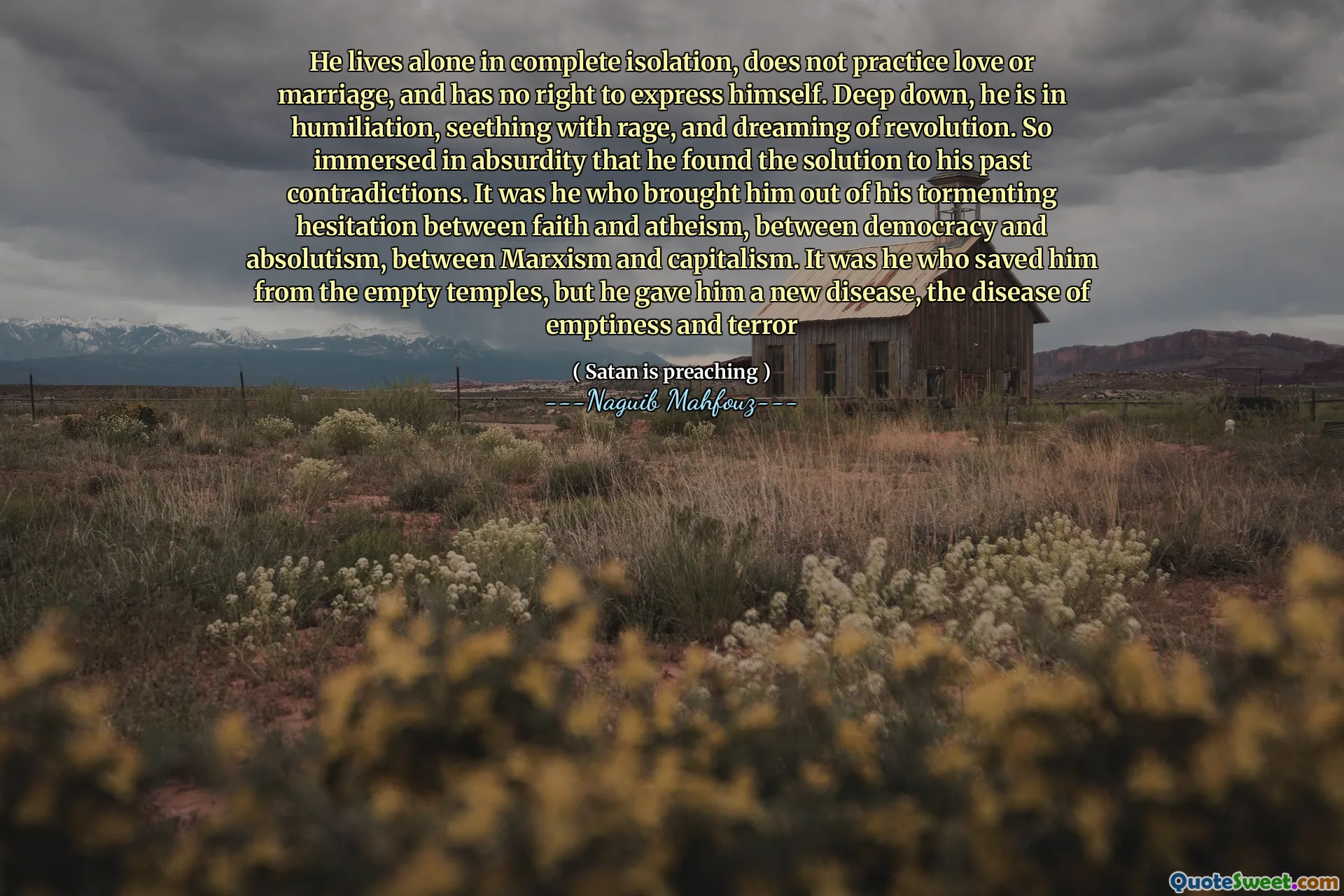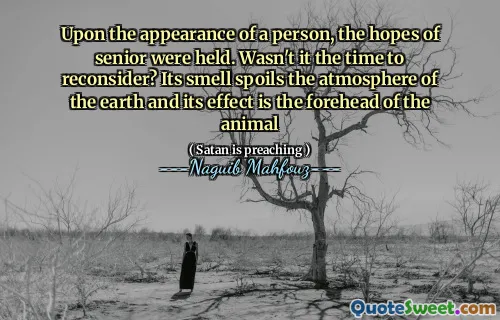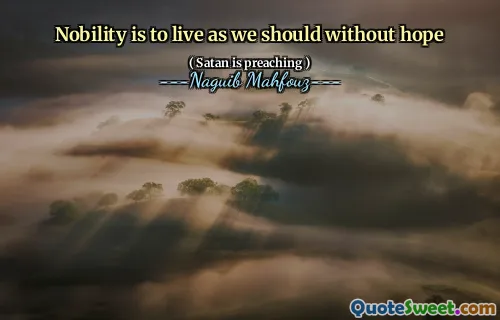
He lives alone in complete isolation, does not practice love or marriage, and has no right to express himself. Deep down, he is in humiliation, seething with rage, and dreaming of revolution. So immersed in absurdity that he found the solution to his past contradictions. It was he who brought him out of his tormenting hesitation between faith and atheism, between democracy and absolutism, between Marxism and capitalism. It was he who saved him from the empty temples, but he gave him a new disease, the disease of emptiness and terror
The protagonist lives a life of solitude, detached from love or companionship, and feels stripped of his ability to voice his thoughts. Beneath this isolation, he grapples with deep-seated anger and dreams of societal upheaval. His existence is shrouded in absurdity, leading him to confront and resolve the conflicts that have plagued him, including those related to faith and political ideologies.
This journey away from his anguished past comes at a cost, as he transitions from one set of existential dilemmas to another. While he finds liberation from traditional beliefs and institutions, he becomes afflicted by a new sense of emptiness and fear. Mahfouz captures the struggle of a man wrestling with his identity amidst a world of contradictions, highlighting the complex nature of freedom and the burdens it can entail.








